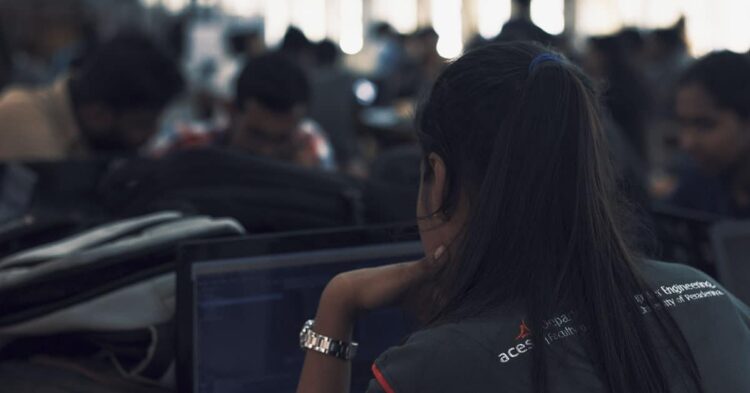Inside the University of Peradeniya, a spacious hall on the first floor entertained a packed crowd of undergraduates who were as busy as one could imagine. From one end of the hall you could hear some announcements blaring every few hours, and the other end had a coffee machine where students were hovering like bees. ACES Hackathon was in full swing.
It’s an initiative that’s been alive at the University of Peradeniya’s Engineering faculty for the past nine years. As is often the case, we saw a bunch of enthusiastic undergraduates bring their ideas to life over the weekend. When we last visited ACES Hackathon, we witnessed ideas ranging from smart alarm clocks to a domestic water management system. This year had 23 teams taking part in the competition. Not all of them made it to the top spot through the judging panel. Nevertheless, here are the top 5 ideas from ACES Hackathon 2019.
Environment and Sustainability: EcoCredit
Single-use plastic has been a growing concern in the recent past and for good reason. It may be cost-effective to manufacture, and may even offer convenience to consumers. But the negative impact on the environment is no secret. EcoCredit wants to help solve this problem, specifically concerning single-use polythene bags.

The idea is to reward customers with mobile data for using reusable bags while shopping. Although major supermarket chains are already advocating for reusable shopping bags, Eco Credit’s target is small and medium-scale stores. Here, the service will be facilitated via a cloud-based API platform. This allows for the system to be used by shops through a web app or an embedded device.
Agriculture and irrigation: Compost Quality Analyzer
Another growing trend is the demand for organic produce. Although on the rise, mass-producing them still poses its challenges. Among them, is compost fertilizer. The Compost Control team notes that the issue comes down to maintaining the quality of the compost.
The team pitched the idea for a Compost Quality Analyzer. This solution measures the temperature and humidity of the compost heap in real-time. This is done through a mobile and web app. When the defined parameters go out of range, notifications will be sent out to the user.
Transportation and safety: Suspicious Activity Detection System
In the wake of terrorist attacks in the country, CCTV systems offer the basic vigilance that’s often needed. However, these systems also require a “human” inclusion to regularly monitor the footage to determine any situation. This dual intervention might not be practical always, especially when it’s prone to flaws.

Utilizing machine learning, the team now hopes to analyze multiple CCTV video feeds. This would enable the system to identify suspicious activity by keeping track of people. In fact, it goes a step further and keeps track of unattended bags more accurately.
Lifestyle: Uniboard
Almost every notable university/institute uses its e-learning system today. This is primarily as a means of interacting with the students. These systems serve the functional use of issuing notices and course-related content. Uniboard wants to tackle the lack of user-friendliness and the limited features they usually offer.
In the era of smartphones, it often boils down to effectively capturing one’s attention. That’s what social media has done and continues to do well to this day. The team hopes to emulate some of the social media elements within their university e-learning system. The idea is to increase attention and engagement towards the system. This means that university-related notices and announcements are delivered more effectively.
Medical and Healthcare: TinyPod
Last but not least, is a solution that addresses a healthcare problem – dehydration. In general, this condition refers to the state when one’s body lacks sufficient fluids. This can have dire consequences, especially for children. In serious cases, this could lead to brain damage or even death. Dehydration is concerning particularly considering babies as they are roughly 75% water.

TinyPOD is a baby pacifier that measures specific parameters to help identify the hydration level for babies. The solution comes in the form of a pacifier with sensors that can record moisture levels, body temperature, and breathing patterns to monitor hydration. Should parameters display irregularities, the device could immediately send out alerts.
ACES Hackathon 2019: another one under wraps
Drawing interest and inspiration from students with the same energy for almost a decade, ACES Hackathon 2019 saw over a hundred participants from the university. Not all ideas were exactly original. We’ve definitely heard a few of them before. But that shouldn’t take away the interest and passion the students have shown with the ideas they’ve pitched.

So there you have it. Those were the top 5 ideas from ACES Hackathon 2019. Which of these ideas piqued your interest? Let us know in the comments below.







GIPHY App Key not set. Please check settings